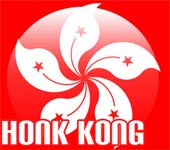Hong Kong government voices concern over Macau travel bans
 Hong Kong - The Hong Kong government was Thursday asking officials in Macau why it has refused entry to a number of people including academics, politicians and a journalist.
Hong Kong - The Hong Kong government was Thursday asking officials in Macau why it has refused entry to a number of people including academics, politicians and a journalist.
Hong Kong's Secretary for Security Ambrose Lee said the city government was "concerned" about the travel bans imposed by Macau and would seek an explanation from its Beijing-appointed leaders.
Several pro-democracy politicians have been refused entry to Macau since December and two academics who opposed national security laws being introduced in Hong Kong in 2003 have also been denied entry.
A Hong Kong photographer who was detained briefly in Beijing last year when a scuffle broke out over queues for Olympic tickets was also refused entry to Macau on security grounds.
Macau is a 45-minute ferry ride from Hong Kong and people barred from entry to the territory are usually turned away at immigration when they arrive and put on a ferry back to Hong Kong.
The travel bans have provoked fears that Macau - which like Hong Kong was a colony before reverting to Chinese rule in the 1990s - is taking a hard line on anyone it sees as being anti-China.
Casino tycoon Stanley Ho, who runs most of Macau's famous casinos, told reporters Wednesday he supported the travel bans, saying the people refused entry had been intent on stirring up trouble.
In Hong Kong, former secretary for security Regina Ip who stepped down after an attempt to introduce national security laws set off massive street protests, described the travel bans as "ridiculous" and called on the government to challenge them.
Macau, which introduced national security laws in February without a murmur of public opposition, has given no formal response so far to the outcry over the travel bans although one of its ministers has said it was entitled to expel the journalist.
Macau was a Portuguese colony for 450 years before reverting to Chinese rule and has a reputation for being less resistant to Beijing rule than Hong Kong and less enthusiastic to maintain press and personal freedoms.
Both Hong Kong and Macau have independent mini-constitutions, guaranteeing political freedoms and judicial independence under what are called "one country, two systems" arrangements with China. (dpa)